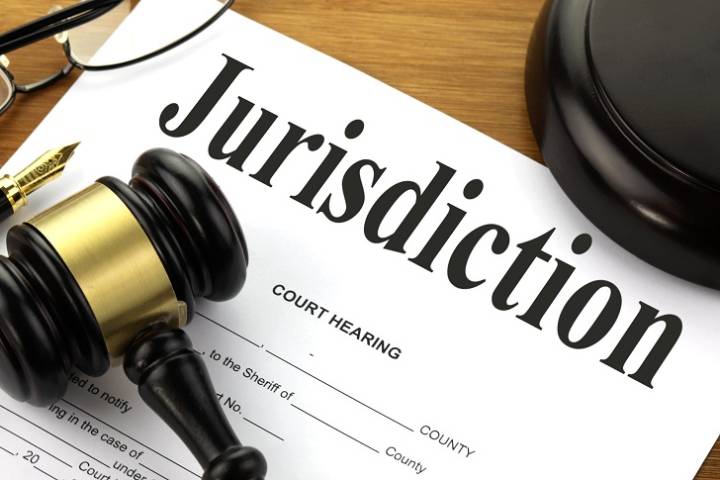Sudalaikumar vs The Sub Divisional Executive
Decided on: 14th July, 2023
CORAM: Hon’ble Justice K.K Ramakrishnan
Crl.R.C.(MD).No.733 of 2023
Introduction:
Criminal Revision Petition No.733 of 2023 arises from an order passed by the Sub Divisional Executive Magistrate, Thoothukudi, on 05.07.2023, which resulted in the arrest and detention of the petitioner, Sudalaikumar, under Section 122(1)(b) of the Code of Criminal Procedure (Cr.P.C). Sudalaikumar challenged the jurisdiction of the Executive Magistrate to pass such an order, and the matter was brought before the Madurai Bench of Madras High Court. Justice K.K. Ramakrishnan presided over the case and considered the legal arguments presented by both parties.
Factual Background:
Sudalaikumar was arrested and detained under Section 122(1)(b) of Cr.P.C for allegedly violating the conditions of a bond executed under Section 107 of Cr.P.C. The bond was dated 02.02.2023. Sudalaikumar contended that the Sub Divisional Executive Magistrate lacked jurisdiction to issue such an order. He relied on a recent judgment by the Hon’ble Division Bench in P.Sathish @ Sathish Kumar vs. State, reported in 2023 (1) MWN (Crl.) 499, to support his claim for quashing the impugned order.
Petitioner’s Argument:
Sudalaikumar’s counsel argued that the Executive Magistrate did not have the authority to pass an order under Section 122(1)(b) of Cr.P.C. The counsel cited the judgment in P.Sathish @ Sathish Kumar vs. State, where the Hon’ble Division Bench declared certain Government Orders as unconstitutional. The judgment stated that Deputy Commissioners of Police were not vested with powers of an Executive Magistrate under Sections 107 to 110 of Cr.P.C. The counsel contended that the violation of a bond executed under Section 107 of Cr.P.C should be dealt with under Section 446 of the Code, not Section 122(1)(b).
Respondent’s Argument:
The Government Advocate (Crl. Side) representing the respondents informed the court that they intended to file a Special Leave Petition (SLP) before the Hon’ble Supreme Court against the order passed by the Madras High Court in P.Sathish @ Sathish Kumar vs. State. The respondents did not challenge Sudalaikumar’s claim regarding the lack of jurisdiction.
Court’s Analysis and Decision:
Justice K.K. Ramakrishnan reviewed the relevant legal provisions and the judgment in P.Sathish @ Sathish Kumar vs. State. The court agreed with the Hon’ble Division Bench’s findings, which declared the Government Orders conferring Executive Magistrate powers to Deputy Commissioners of Police as unconstitutional. As a consequence, the court held that an Executive Magistrate cannot authorize imprisonment under Section 122(1)(b) for the violation of a bond executed under Section 107 of Cr.P.C. The appropriate course of action in such cases is to initiate proceedings before a Judicial Magistrate for inquiry and punishment under Section 122(1)(b) of Cr.P.C.
Having considered the legal principles and the relevant judgment, the court concluded that the Sub Divisional Executive Magistrate lacked jurisdiction to pass the impugned order. Accordingly, the court allowed the Criminal Revision Petition and set aside the order dated 05.07.2023. Sudalaikumar was directed to be released forthwith, unless his custody was required in connection with any other case.
Conclusion:
The case of Sudalaikumar vs. The Sub Divisional Executive Magistrate highlights the importance of adhering to the constitutional principles and jurisdictional boundaries when exercising powers under the Code of Criminal Procedure. The court’s reliance on the recent judgment in P.Sathish @ Sathish Kumar vs. State exemplifies the significance of precedent in the legal system. The decision reaffirms the role of Judicial Magistrates in handling violations of bonds executed under Section 107 of Cr.P.C, emphasizing the importance of due process and appropriate legal recourse. The case also underscores the need for clear demarcation of powers among different authorities to maintain the integrity and fairness of the justice system.
“PRIME LEGAL is a full-service law firm that has won a National Award and has more than 20 years of experience in an array of sectors and practice areas. Prime legal fall into a category of best law firm, best lawyer, best family lawyer, best divorce lawyer, best divorce law firm, best criminal lawyer, best criminal law firm, best consumer lawyer, best civil lawyer.”
JUDGEMENT REVIEWED BY SHREEYA S SHEKAR


